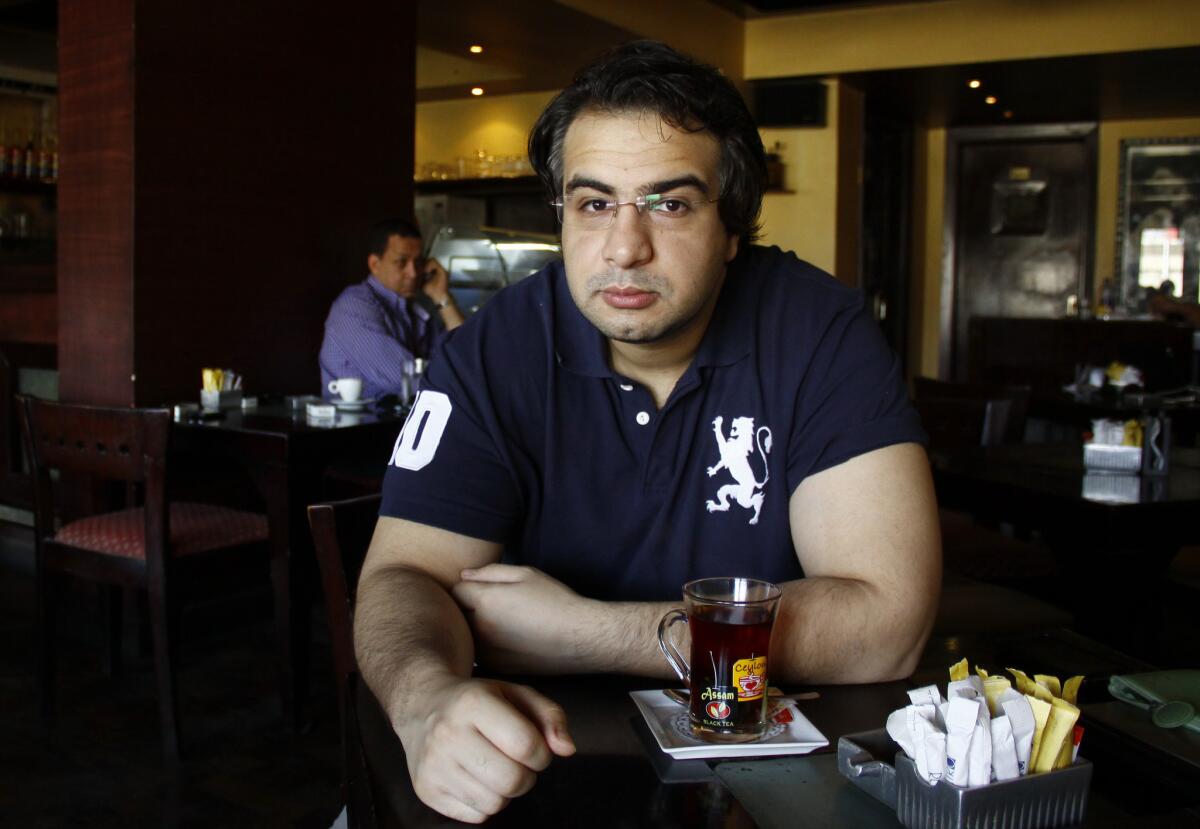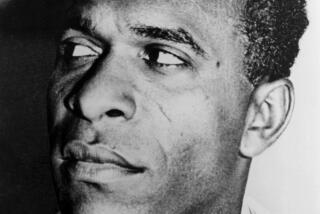Egyptian writer Bassem Sabry’s opinions live on after his death

The unexpected death in Egypt this week of pro-democracy activist and writer Bassem Sabry has led his friends and followers to honor him by promoting the principles and views he had expressed since the nation’s 2011 uprising.
The 31-year-old Sabry, whose analyses of Egypt’s politics the last few years were respected locally and internationally, died Tuesday from what is believed to have been an accidental fall from a balcony of a Cairo apartment. His funeral was Wednesday in the Egyptian capital.
As a tribute, Sabry’s admirers -- his Twitter account lists 115,000 followers -- have delved into his writings. “The most painful death is the death of hope,” read a December 2011 tweet by Sabry that was retweeted extensively.
Sabry’s penultimate Facebook post written April 25 also was frequently shared and mentioned in obituaries: “[…] some issues are worth taking risks, it’s the issues that could give you a chance to ‘live’ and not just to ‘stay alive’.”
On Friday, the Tahrir Institute for Middle East Policy, a newly established Washington-based nongovernment organization, announced the establishment of a fellowship that “aims to further the causes and principles” Sabry believed in.
A eulogy that went viral was written for the Egyptian online newspaper Mada Masr by H.A. Hellyer, a nonresident fellow in foreign policy at the Washington, D.C.-based think tank Brookings Institution and the Royal United Services Institute in London.
“At a time when Egypt sorely needed voices that rejected destructive polarization and mutual hatred, Bassem was one of the few that insisted on standing for far loftier principles,” Hellyer wrote.
“He believed in a better Egypt for all Egyptians and worked tirelessly, often very quietly and without taking credit, in pursuit of that goal,” he said. “If you want to honor his memory, I suggest you do what he did: Start building something beautiful and just put the hate away.”
Hellyer started his article with a tweet by Sabry from March 2013 reading, “Why is it that all the good people die in this country?”
Apart from obituaries in international and local papers, several prominent figures such as U.S. Secretary of State John F. Kerry have paid tribute to Sabry while offering condolences to his family. Kerry described Sabry via Twitter on Wednesday as an “important voice for Egypt.”
Former Egyptian vice president Mohamed ElBaradei referred to Sabry as a “noble person who we [Egyptians] lost while we’re in dire need of him.”
Sabry was a founding member of and strategist for the Constitution Party -- a liberal party founded by ElBaradei -- and a member of the campaign team of Egypt’s leftist presidential hopeful Hamdeen Sabahi. Sabahi is running against former army chief Abdel Fattah Sisi, who led the ouster of Islamist President Mohamed Morsi last year after protests against his rule, in an election May 26 and 27.
Born and raised in Cairo, Sabry studied business administration and was a film producer. He contributed to a number of local and international media outlets including Al-Monitor, Foreign Policy and the Atlantic.
Ahram Online, the English website of Egypt’s largest news organization Al-Ahram and one of the publications for which Sabry wrote, compiled some of his articles to commemorate him.
In one opinion piece almost two years ago Sabry wrote:
“I lived my childhood believing that Egypt was the centre of the universe … that Hosni Mubarak was the greatest president in the world as they had written in Al-Ahram and said on Channel one. And I believed that there could not be other good people other than those who shared my beliefs.
“Then I voyaged, and my tongue spoke twelve languages, and my ears heard a hundred and twenty. I have seen Europe, America, India, China and the Arab countries. I have seen those who insult the presidents of their country in the media in the most developed of nations, and I have seen that society accepts it as a reasonable price for freedom.”
Tarek, a reporter from Cairo, is a visiting journalist at The Times sponsored by the Daniel Pearl Foundation in partnership with the Alfred Friendly Press Fellowships.
More to Read
Start your day right
Sign up for Essential California for news, features and recommendations from the L.A. Times and beyond in your inbox six days a week.
You may occasionally receive promotional content from the Los Angeles Times.






